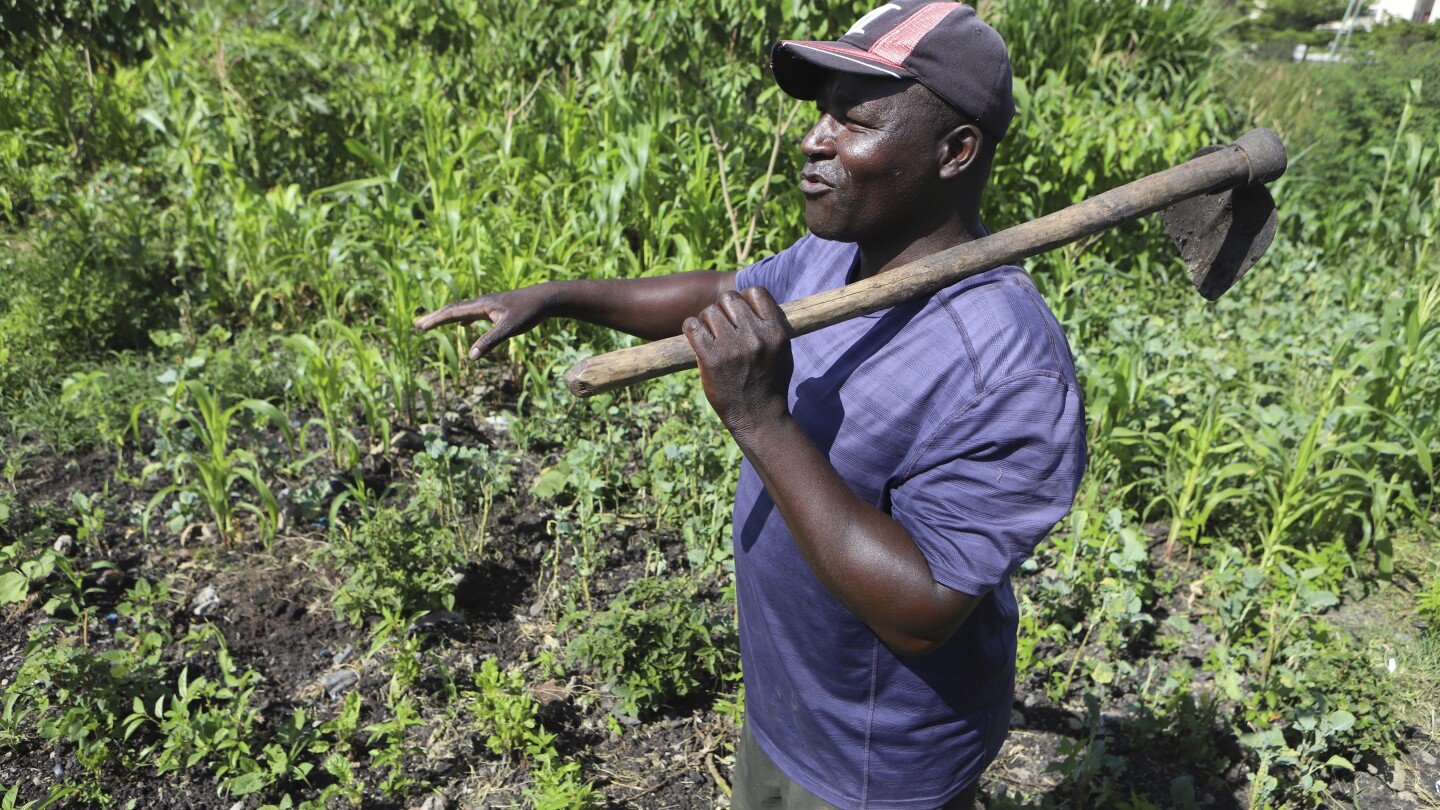When Benson Wanjala started farming in his western Kenya village two and a half decades ago, his 10-acre farm could produce a bountiful harvest of 200 bags of maize. That has dwindled to 30. He says his once fertile soil has become a nearly lifeless field that no longer earns him a living.
Like many other farmers, he blames acidifying fertilizers pushed in Kenya and other African countries in recent years. He said he started using the fertilizers to boost his yield and it worked — until it didn’t. Kenya’s government first introduced a fertilizer subsidy in 2008, making chemical fertilizers more accessible for smaller-scale farmers.
Problems with soil health are growing as the African continent struggles to feed itself. Africa has 65% of the world’s remaining uncultivated arable land but has spent about $60 billion annually to import food, according to the African Development Bank. The spending is estimated to jump to $110 billion by 2025 due to increased demand and changing consumption habits.
“Inorganic fertilizers were never meant to be the foundation of crop production,” he said, later adding that because of “commercially inclined farming, our soils are now poor, acidic, and low in biomass resources, and without life!”



Years ago I went to Kenya and Tanzania to asses some fields for trials of new cultivars my group was developing. There were a lot of issues with people seeing a yearly decrease in crop yield. But the major issue was actually the lack of crop rotation causing a buildup of disease in the soil which was weakening the plants each year.
I don’t know this guy or his field. And, not carefully fertilizing fields can cause root burn for sure. But poor agricultural yield in Africa is definitely impacted by poor crop rotation.
Wasn’t farming invented in Africa? Or at least the nearby Middle East. This has been a known issue for years.
I bet it’s an issue with farmers needing money now, because of low crop prices. Crop prices are cyclical, so hopefully it works itself out without too much economic damage.
Soccer was invented in England. How’s that going for them?
It would have been developed by humans all around the world at the same time. Technology and knowledge weren’t the limiting factor–humans have always known that you can toss some seeds in the soil and a plant will come out. What was lacking was the climate–the last ice age ended about 12,000 years ago and only after that was massive cultivation possible. It was after that where you see settlements and eventually cities appear.
It’s more complex than this, but it’s related to climatic change.
First, we’re still in the ice age. We’re just in an interglacial period.
During the glaciation, humans mainly hunted a few big game. It was an inhospitable environment.
When the glaciation ended, the climate became more stable, warmer, more clement. Rivers rised and became calmer, as the sea level rose.
Humans started diversifying and broadening what they ate. They collected much more plants, hunted more animal species, notably small game, fished much more. It was the mesolithic.
In zones that were particularly abundant in resources, probably at the edges of ecozones, it became possible and interesting to settle down somewhat, and defend this territory against outsiders. Owning resources allowed to invest time and labor into making things more productive. Domestication was part of that.
Not all regions are suitable, or have sufficient domesticable species. Some places took much longer than others to really get farming going, and most never did, until domesticates arrived there from somewhere else.
Hmm, it seemed to be a problem with subsistence crops too. We were working on black rot resistance in sukuma wiki which isn’t a cash crop. We were working on resistance specifically because it reduced the need to rotate crops. People could grow it more continuously without risking yield loss.
Methinks it’s a capitalist issue, not a farming issue.
Farmers can’t bank seeds and have to buy new every year or face legal consequences.
Probably also planting based on value of crop vs cost of growing not nutritional red of the community.
It’s not an “ism” issue. This has happened in countries that were completely anti-capitalist. It’s just a biological imperative: you have to rotate crops, regardless of who runs your country.
The Soviet Union and the PRC demanded quantities of cash crops for export too. If your choice is rotating crops or staying out of the gulag, you’re not going to rotate.
Anti-capitalist maybe, but pro capital. Dear leader and his cronies need the cash crops to for export, fancy houses don’t grow on trees. They grow off the the sweat of the worker.
I didn’t intend to say the farmer is making the choices solely for personal profit. They grow what sells, or what they’re told to, so they can afford to live, not their choice.
In the end I see we agree. It’s not about an ism. It’s all about cash. Money. Capital. And greed doesn’t care about crop rotation- it’s too short sighted.